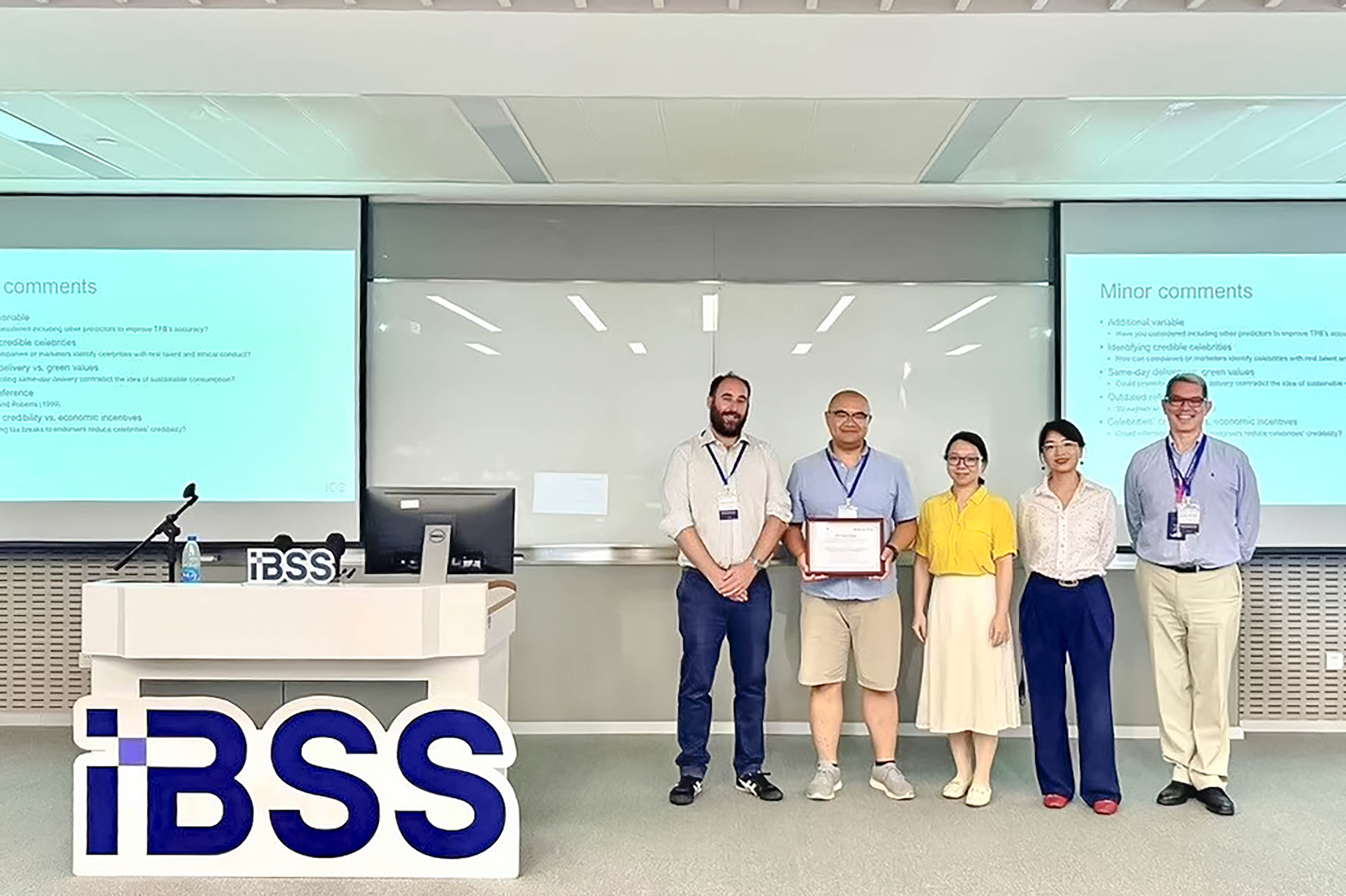Between 14 June and 13 July 2025, a team from the IQS School of Management conducted a research stay at the International Business School Suzhou (IBSS) within Xi’an Jiaotong-Liverpool University (XJTLU), located in Suzhou, China. The activity was conducted within the framework of the European PoPMeD-SuSDeV project(Grant agreement ID: 101086139), focused on sustainable development models from an interdisciplinary perspective. This four-year research project (2023-26) is being led by IQS, with Dr Octasiano M. Valerio Mendoza as the principal investigator.
The participating team consisted of professors DrFlavio Comim and Dr Mihaly Tamas Borsi, research assistant Dr Juan Albacete Maza, and CETIS (Centre for Theory and Social Indicator Studies) doctoral students Jundi Wang and Maria Chiara Terzani. During their research stay, the researchers participated in joint academic activities, scientific meetings, and explored new lines of international collaboration.
An international workshop to analyse the Chinese model
One of the major achievements of the collaboration was the co-organization of the 4th International Workshop on the Chinese Development Model, held on 4 July 2025 at the XJTLU campus in Suzhou. The event was jointly organized by the IBSS and the IQS School of Management, and brought together more than 30 international academics to reflect on the features, achievements, and challenges of the Chinese economic development model.
Professor Jorg Bley, Dean of IBSS, opened the event by highlighting the school’s unique position as a triple-accredited institution with faculty from more than 25 countries. He highlighted how Suzhou, known as “paradise on earth” in Chinese tradition, perfectly represents the tensions between cultural heritage and innovation that define the country’s development.
The inaugural presentation was given by Professor Xuezhong (Tony) He, also from IBSS, under the title “Interbank Network and Market Resilience.” His speech addressed how interbank networks contribute to financial stability, although they can also lead to risks if opportunistic behaviours arise. He identified a sweet spot in network size that maximizes the benefits of risk-sharing without falling into systemic fragility, offering regulators key tools to design effective policies.
Applied Research on Sustainability, Ageing, and Financial Regulation
The workshop included the presentation and discussion of 10 academic papers, focusing on issues such as the resilience of the financial system, green growth strategies, demographic challenges, and sustainable business models. These contributions led to new joint research initiatives, especially in areas of high relevance such as sustainable financing (Green Fintech) and the impact of population ageing.
One of the highlights was the Best Paper Award presented to Dr Shang Jiang, from Nottingham Trent University, for his work “Macroprudential Regulations and Greenwashing: A Novel Endogenous Growth Theory and Empirical Evidence.” The scientific committee praised his innovative theoretical framework, capable of addressing the political dilemma between encouraging real innovation, avoiding greenwashing, and preserving the stability of the financial system.
In his closing remarks, the Dean of the IQS School of Management, Dr Flavio Comim, highlighted the value of the event as a space for interdisciplinary dialogue: “These opportunities for in-depth academic exchanges are precisely what makes this type of gathering so valuable.” He thanked IBSS in particular for their hospitality and recognized the effort and enthusiasm of all participants.
The research stay and the workshop reflect IQS’s commitment to internationalization, academic excellence, and tackling major global challenges from a critical and collaborative perspective. As a research-focused institution, IBSS continues to lead the study of China’s economic transformations and their impacts on an ever-changing global context.










